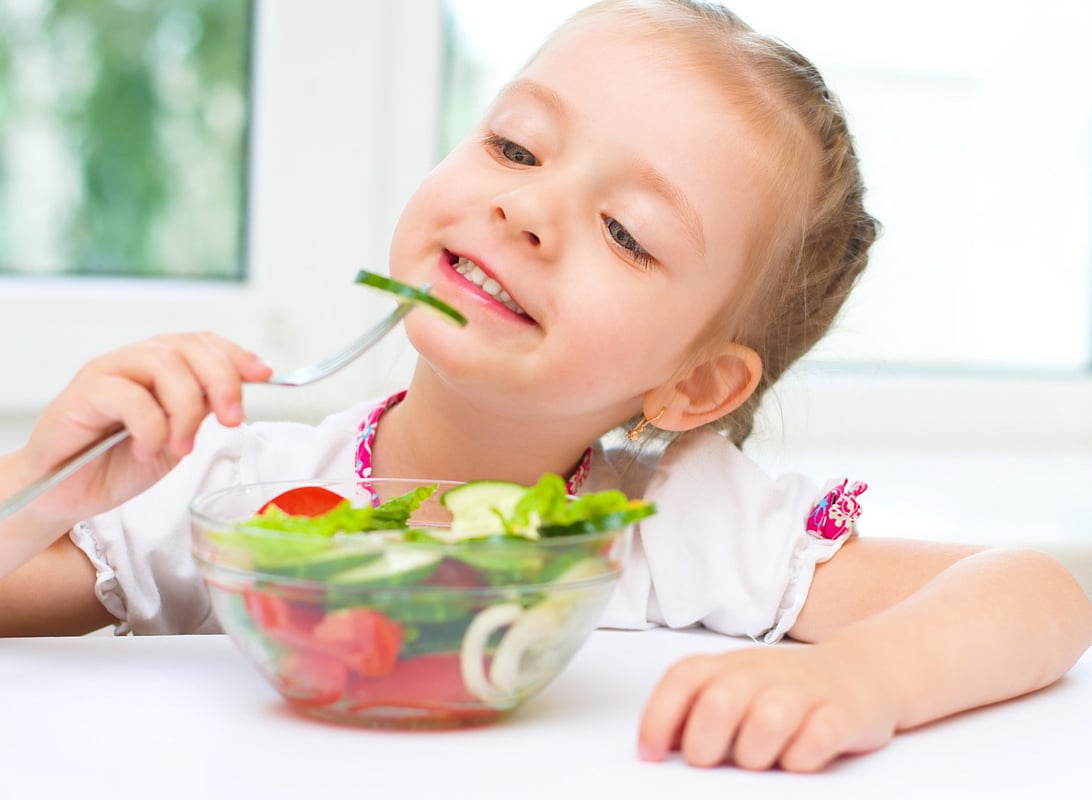There’s a Secret to Getting Kids to Eat Vegetables

MONDAY, May 9, 2022 (HealthDay News) -- Do you have a child who refuses to eat anything green? Rewarding them for trying new vegetables may make them more willing to eat them, a new study claims.
"It's important to start eating vegetables from a young age," said lead researcher Britt van Belkom, from the Youth, Food and Health program at Maastricht University's Institute for Food, Health and Safety by Design in the Netherlands.
“We know from previous research that young children typically have to try a new vegetable eight to 10 times before they like it," she noted. “And so we looked at whether repeatedly asking children to try some vegetables would make them more willing to eat their greens. We were also interested in whether providing a fun reward would make a difference.”
The study included nearly 600 children, ages 1 to 4, at day care centers in the Netherlands. They were randomly assigned to one of three groups: exposure/reward, exposure/no reward, or no exposure/no reward (control group).
Those in the first two groups were given the opportunity to try a range of vegetables every day they attended their day care center for three months. Those in the reward group were given fun, non-food rewards such as a sticker or toy crown when they tried some vegetables.
At the start and end of the study, the researchers assessed the children's knowledge of 14 vegetables (tomato, lettuce, cucumber, carrot, bell pepper, onion, broccoli, peas, cauliflower, mushrooms, green beans, chicory, pumpkin and asparagus) and their willingness to taste six of them.
In both the exposure/reward and exposure/no reward groups, children could identify about 9 vegetables at the start of the study and about 11 at the end of the study, compared with about 8 and 10 in the control group.
At the start of the study, children in all three groups were willing to try 5 to 6 vegetables. By the end of the study, that number decreased in the control group, remained the same in the exposure/no reward group and rose to 7 in the exposure/reward group.
The study was presented at the European Congress on Obesity, held in Maastricht, the Netherlands, May 4-7. Research presented at meetings should be considered preliminary until published in a peer-reviewed journal.
"Regularly offering vegetables to toddlers at day care centers significantly increases their ability to recognize various vegetables," van Belkom said in a meeting news release. "But rewarding toddlers for tasting vegetables appears to also increase their willingness to try different vegetables."
She added that the "type of reward is, however, very important -- it should be fun but not food."
More information
For advice on getting your child to eat more fruits and vegetables, see the American Academy of Pediatrics.
SOURCE: European Congress on Obesity, news release, May 5, 2022
Related Posts
Kids Still Getting Injured After Swallowing High-Powered Magnets
FRIDAY, Oct. 20, 2023 (HealthDay News) -- Despite warnings and public education...
Strains and Sprains
What's the difference between a strain and a sprain? Both strains and sprains...
Fertility Treatments Pose No Danger to People With MS
THURSDAY, March 16, 2023 (HealthDay News) -- Women with multiple sclerosis who...
Motherhood Doesn’t Lower Survival for Women Who’ve Had Breast Cancer
THURSDAY, July 7, 2022 (HealthDay News) -- Breast cancer survivors who would...
